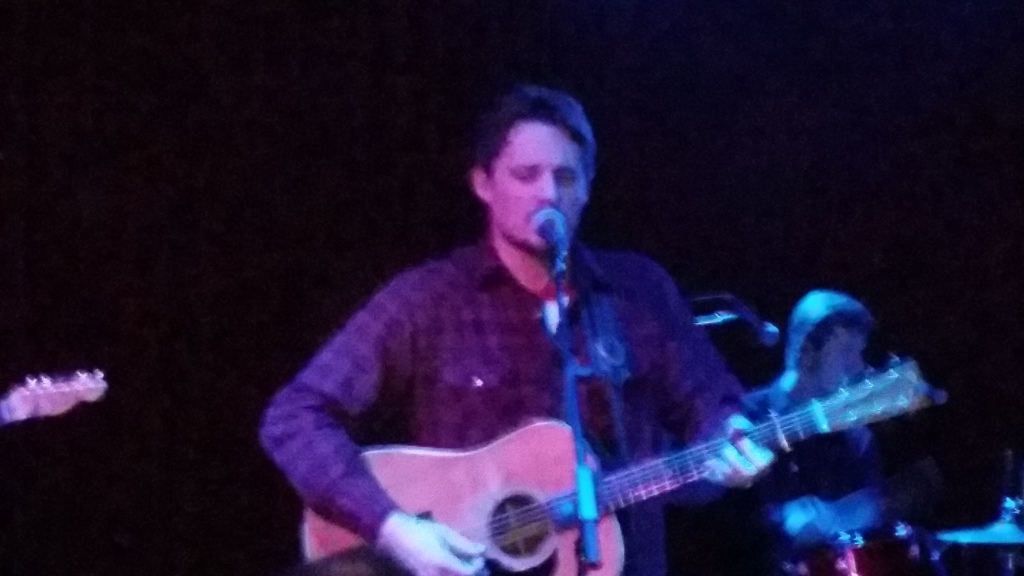Music is not a static thing. There is no such thing as a pure form of music.
The current hand-wringing around the state of country music implies that there’s some pure, better form of the music that we are denying at best, losing at worst. It;s not new. The same worry of a lost way is a constant topic around most genres. Rock is dead. Punk is head. Hip-Hop has sold out. Bro country is the new satan.
The struggle between art and commerce is the core of this discussion. In order for a performer to continue to make music they need the freedom, creative freedom as well as freedom from starvation.
Since Bristol folk music been driven from the fields and porches and into commodity. It’s a reality and there’s no turning back, and it’s or the best. If not for commodification and musicians being monetarily rewarded for producing music we as fans would not have much of the music that’s become a part of our lives.
In country music Music Row has long been the standard to adhere to and rail against. Music Row’s push toward mitigation of risk by driving standardization and homogeny is a page right out of the Henry Ford and McDonalds book of business. This makes lot’s of money but leads to mediocre music. Sometimes the pendulum swings too far.
The slick Nashville Sound of Eddy Arnold led to the harder Bakersfield Sound with Buck Owens and Merle Haggard. Outlaw Country was a latter reaction to the controlled, top-down production of the Music Row studio system. The neo-traditional wave of the 80’s – Randy Travis, Lyle Lovett, Rosanne Cash, Keith Whitley, Marty Stuart, Nanci Griffith, Steve Earle and Dwight Yoakam was a salvo against the cultural and economic juggernaut known as Urban Cowboy movement.
When George Strait and Alan Jackson joined forces to chastise the industry on “Murder on Music Row,” they were setting their sights directly on that savvy self-promoter Garth Brooks.
So is the midst of bro-country brouhaha we have a new country music savior. Like these other, dare I say, outlaws Sturgill Simpson is the ultimate outsider. Exacting in his sound and themes, indifferent about current style (music and fashion) Sturgill’s working his variation of 70’s hard country music that 30 years before was mined by neo-traditionalists like Dwight Yoakam. And there appears to be a new audience hungry for a similar sound.
A stark contrast to the Merle Haggard show I attended a few days before, the crowd was young but no less reverent. 20 and 30 somethings arrived at Dallas’ storied Club DaDa to catch a sound that their grandparents might enjoyed at Billy Bob’s decades before.
The pendulum swings.
After some last minute changes by the local promoter due to chilly weather and to accommodate grumbling fans left ticketless from the small venue (I believe Sturgill could have sold out The Granada) the crowd was packed, primed and a little pickled.
Baltimore native opener Cris Jacobs had a daunting task confronting this rowdy crowd. But his Chris Stapleton-like soulful croon and dexterity on the acoustic and cigar box guitar quickly won us all over.
Once Jacobs set ended within minutes Simpson enters the stage to the roar of the crowd, which was the only signal that something had happened. No big announcements or set changes, just…Sturgill Simpson lead guitarist, a bassist and a drummer. It’s startling in the world of entertainment big entrances how effective this was.
And without pomp and choreographed gyrations to distract a crowd you need to deliver, and Simpson and band did just that. Estonian-born guitarist Laur Joamets is a present day Don Rich. His throwback Travis Tritt looks and mastery of that staple of country music , the fender Telecaster, showed why Simpson, no slouch on the guitar himself, gave him the gig.
Simpson looks menacingly into the crowd with a crooked smile and sang his songs about hillbillies and mind-altering substances and the crowd responded in dizzying accord. The audience’s singing was so enthusiastic that during the hits ‘Turtles All The Way Down ” and “Living the Dream,” the band was barely decipherable and many passages Simpson just the crowd at it, and smiled.
Which makes me wonder, is it a hit if radio refuses to play it? The crowds response gives me all the answer I need.
This night, this show, this crowd – it all had a feeling of once in a lifetime event. Like you’ll never see this man in a venue this small again. with the late-night show appearances and sold-out shows he’s moving on to bigger places.
But no matter how big this becomes Simpson is keeping it all in perspective. On his bus after the show show Simpson confesses ‘This has been a wild year , and I’m thankful. But I remember those nights when nobody came. you can’t take this for granted.”
Simpson is a tipping point of other traditionally like-minded folks like Jamey Johnson and Kacey Musgraves that are at the right place, at the right time. And more importantly, with great songs and a sense of history, but without a dogged allegiance it it.
Is Simpson country music’s savior? No, it’s doesn’t need saving. bUt he and his fans are having a hell of a tie riding the pendulum as it swings.


Hello it’s me, I am also visiting this site daily, this website is in fact nice and the people
are genuinely sharing nice thoughts.